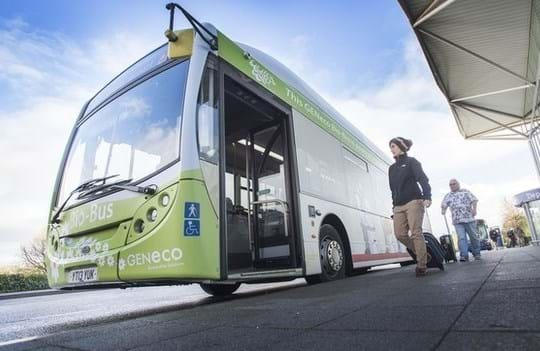Day 227: Human waste could power a lunar space mission

9th January 2015
Author: Geoff Maitland, IChemE President 2014–2015.
You may remember that I made a few suggestions in my festive blog, 'Can chemical engineers save Santa?'. One of my suggestions was to process the reindeer's poo in order to produce biogas for fuel to help Santa travel around the globe to deliver presents.
But processing waste to biogas for fuel may not be limited to just our planet. Researchers at the University of Florida have been working towards the design of an anaerobic digester that can be used on the moon to power a rocket - this rocket would return astronauts back to earth.
NASA is planning to construct a lunar station over a period of five years between 2019 and 2024 with four crew members. So Pratap C. Pullammandappallil, associate professor of agricultural and biological engineering at the University of Florida and author of the study, has conducted research into optimising technologies for waste digestion.
Based on the premise that there will be four crew members present on the lunar base, and using chemically simulated food waste and packaging, the study calculated that a year's worth of the crews' waste could provide around 23 per cent of the methane required as fuel for the journey home.
Pullammandappallil, who studied chemical engineering at the Indian Institute of Technology, published his findings in the Advances in Space Research journal.
Pullammandappallil added that: "59 per cent of methane would be available from carbon dioxide produced by the digester, and from life-support systems so that a total of 82 per cent of fuel needed for lunar ascent could be produced from waste products."
This could mean that any excess weight can be removed right from the outset i.e. lift off from Earth.
But in terms of the technological uptake currently being quite small, Pullammandappallil stated: "One of the reasons is the lack of appropriate digester vessel designs for certain types of wastes."
It's clear to be seen that using human and food waste in anaerobic digesters to produce biogas could provide fuel solutions here on earth as well as up in space.

And this was certainly the case when news of the UK's first 'poo bus' hit the headlines. The bus in question is called "Bio-Bus", and it transports passengers on its route between Bath and Bristol Airport with biomethane gas as its fuel.
The human and food waste used to produce the gas is processed at Bristol sewage treatment works, run by GENeco (a subsidiary of Wessex Water). And one tank of gas can provide fuel for up to 186 miles of travel, and is equivalent to the amount of biomethane gas processed from the annual waste produced by five people.
This 'poo bus' is a way of providing sustainable fuel for public transport, while improving urban air quality.
So there you have it, poo just might be the fuel of the future, both in space and time!
ChemEng365 blog
Geoff Maitland launched this blog during his IChemE presidency in 2014. ChemEng365 features 365 chemical engineering successes and achievements throughout his year-long presidency.